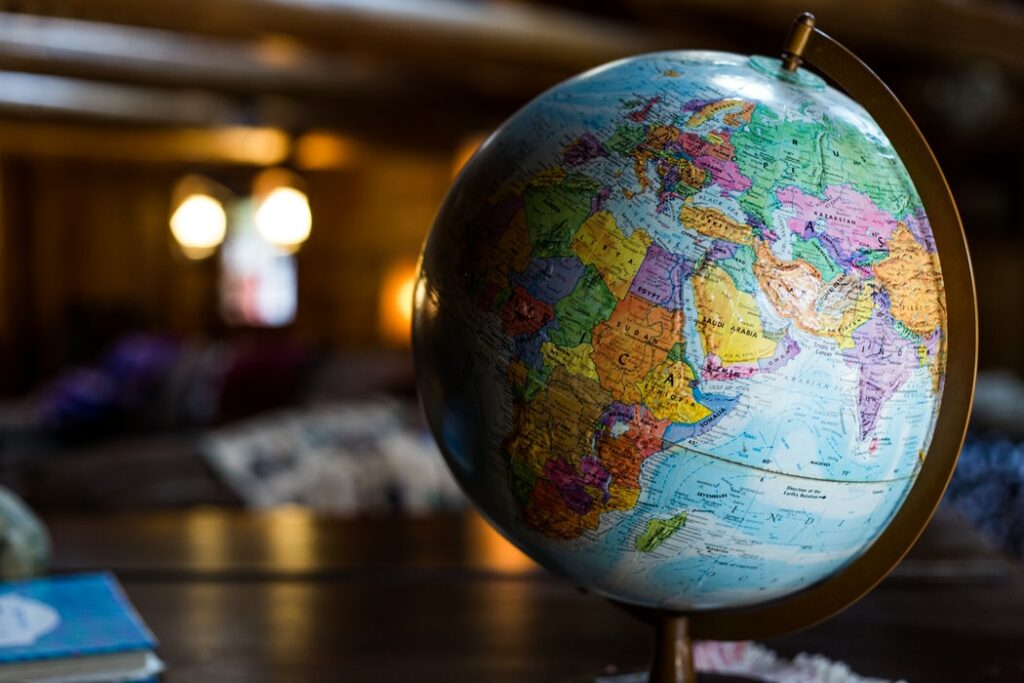Phase 1. Ask: Topic Exploration
Today my identity quest is no longer to find my tribe. It is more about allowing myself to embrace all of the possible permutations of myself and cultivating diversity within me and not just around me.
— Rebeca Hwang, 2018
Topic: Social Studies (Comparative Cultures)
Key Word: diversity, Aboriginal People, Racism 
—Photo taken by Kyle Glenn
Who am I? Where am I from?
Big Questions
- What challenges do we experience in maintaining peaceful relations with and across diverse cultures or groups?
- How can we identify who we are in the diverse global village?
- To what extent the understanding of the diversity and complexity of cultural experiences enhances a deeper understanding of the differences between peoples and an appreciation of the aspects of human experience shared across time and space?
Globalization in History
Globalization has existed for many centuries as a connection of different cultures in the world (Arnett, 2002), and it is a continuous process of impacting the world (Chiu et al., 2011). Globalization has a profound influence on the expansion of international cultural, economic, and political activities (National Geographic, 2019). The movement of peoples across national boundaries has become more and more popular due to globalization. The number of worldwide immigrants is increasing. In this global village, both students and teachers should realize the importance of understanding different cultures and customs (Lin et al.,2019)
Canadian History
As is known to all, Canada is an immigrant-friendly nation with inviting policies allowing people into the country. The government has developed numerous policies to invite more immigrants, which extends Canadian diversity (Kruger et al., 2004). These policies are being changed all the time. Recently, two big events have resulted in changes in the way immigration is viewed in Canada. The smuggling and illegal landing of Fujian Chinese on the coast of British Columbia in 1999, and the 11 September 2001 attacks in the United States have made a big change in Immigrant policies in Canada. Immigrants were view as contributors to Canadian society, but are now considered to have a negative impact on Canadian society due to their race, religion or both (Kruger et al., 2004). It makes both immigrants and locals feel unsafe if they do not construct a trusting relationship.
Cultural Identity Development
Individuals communicate with others all the time – at homes, at workplaces, in the groups people belong to, and in the community. No matter how well people think they understand each other such as cultures and characteristics, communication is hard. Culture is often at the root of the challenge. Various, geographic, and historical enables people to take different training and foster their own cultures, Culture shapes people’s approaches to solve problems, and how they participate in groups and communities. When we participate in groups, it is always surprising to see that how people from different cultures work together as a team to achieve their goals. Culture refers to a group or community with which we share common experiences that shape people’s worldviews. It includes groups that people are born into, such as gender, race, or national origin. It also includes groups we join or become part of. For example, we can acquire a new culture by moving to a new region, by a change in our economic status, or by becoming disabled. When we think of culture this broadly, we realize we all belong to many cultures at once. Our histories are a critical piece of our cultures. Historical experiences — whether five years ago or of ten generations back — shape who we are. Knowledge of our history can help us understand ourselves and one another better. Exploring how various groups within our society have related to each other is key to opening channels for cross-cultural communication.
The cultural identity of adolescents growing up in multicultural societies is involved in two parts. On the one hand, globalization fosters cultural change at a rapid speed, and the number of worldwide immigrants results in the issue of cultural identity (van Meijl, 2012). On the other hand, van Meijl (2012) pointed out that “the paradoxical revival of cultural traditions that the large-scale compression of time and space has incited in many societies, especially those with a colonial history” (p. 40).